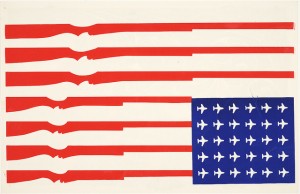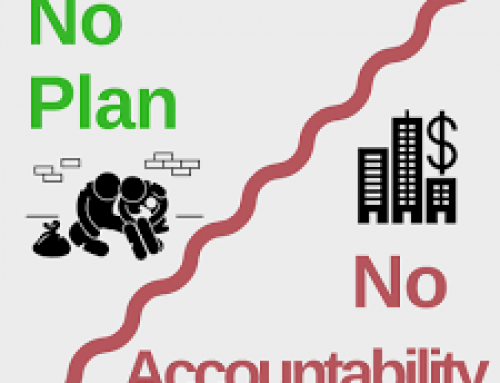May 28, 2013
By: Kelly Diamond, Publisher
Our individual understandings of what is noble are a reflection of our own character.
How we define what is noble should at least run deeper than intentions or life risking, and factor in actions and ends.
 Every year, when Memorial Day, Veteran’s Day, Flag Day, President’s Day, and Independence Day roll around, I go on an absolute TEAR. The Praise the State holidays make my blood boil! Without fail, some parade of Veterans marches down a street, obstructing a day’s worth of traffic. We shut down production in some sectors (well, all but retail, food and hospitality). Kids mounted on the shoulders of their dads waving their flags, while some other yahoo is clad in more yellow ribbon paraphernalia than is proper.
Every year, when Memorial Day, Veteran’s Day, Flag Day, President’s Day, and Independence Day roll around, I go on an absolute TEAR. The Praise the State holidays make my blood boil! Without fail, some parade of Veterans marches down a street, obstructing a day’s worth of traffic. We shut down production in some sectors (well, all but retail, food and hospitality). Kids mounted on the shoulders of their dads waving their flags, while some other yahoo is clad in more yellow ribbon paraphernalia than is proper.
Don’t get me wrong: I love a day off work. I love to shop and eat. Hell, I even like a certain amount of pageantry. But it’s the nationalistic emesis pooling all around me, oozing into my ears and having my face rubbed in it that ticks me off. Inevitably the same theme reemerges: the nobility of public servanthood.
I used to be a staunch neoconservative. I was the poster child for all things ‘Merika! But, irrational as all that was, there remained a small vestige of reason: you can’t support the troops without supporting the wars. I believed that then as much as I do now. The difference being, I no longer support the wars, therefore, in good conscience, I cannot support the mercenaries who fight in them. Perhaps they are genuinely good people with nothing but noble motives, but their private citizen virtues and good intentions hardly manifest themselves on a battle field in the desert as they march through townships fully clad in military gear. If Chinese troops marched up and down the streets of my neighborhood, I’d be petrified, if not compelled to gather up my household cleaning supplies in hopes of defending myself with some homemade explosive device! And I would see that Chinese soldier as anything BUT noble. This exercise in empathy really requires little or no effort.
What if I took this “support the troops” ideology out of the context of the military? Meet Sarah America. She wants to help the homeless! Bless her sweet heart, she applies for a job with someone who says, “We help the homeless!” Eager to start her righteous career, she goes out into the field with her senior manager to learn the ropes.
“Sarah, why did you want this job?”
“To help the homeless!”
“Yes! And that is exactly what we are going to do today! Are you ready? Are you really ready to help the homeless?”
“OH YES!”
“Good. See that Meals on Wheels truck just over there?”
“Sure do!”
“I need you to go over there and shut them down.”
“Wait. What?”
“They don’t have a permit. We know they don’t operate out of a commercially inspected kitchen. The food they are serving put the homeless at risk.”
“But they are feeding them…”
“Yes, but they aren’t feeding them properly regulated food. The homeless they are feeding could get sick from it. How is that helping them? I’ve been doing this for years, and believe me, it’s for their own good.”
“Oh. Okay.”
Sarah America shuts down the Meals on Wheels truck. Did she really just help the homeless? They no longer receive food from a kitchen – albeit an “unregulated” kitchen. They resort to dumpster diving instead, and receive their meals from a trashcan behind a restaurant.
You catch up with Sarah, ask her what she’s been up to. She says, “I’m helping the homeless!” But you know she just shuts down charity operations that feed the homeless. Do you still support her? Do you still support what she does? EVEN if she believes what she is doing is noble, is that enough to garner your endorsement and support for her and her actions? After all, she’s just doing her job and her heart’s in the right place, right?
The same goes for a teacher: “I want to help children!” Really? When kids come home able to recite the pledge of allegiance, with no idea what it actually means; or when they can regurgitate the new “anti-bullying code” but still can’t perform basic math, is the teacher still “helping the children”? When conversations with your children consist of false historical teachings and the child insisting reusable bags will save the planet, is this teacher “helping the children”? No. The answer is no. Is the teacher still deserving of our praise? Is their job even worth defending? Is their job even necessary? It would be if they were actually HELPING CHILDREN. What benefits are children actually receiving from public schools?
Perform the same exercise on a police officer: “I want to protect innocent people from bad people!” Really? How exactly did they accomplish this when they pulled me over for not having a current inspection sticker on my windshield? Or when they broke into a woman’s home, bombed it, and later realized they had the wrong house? Or when they chased someone who was thought to have an illegal plant and caused a school bus of children to flip over into a ditch? Or when they incarcerated a man for filming their actions? Or when they search individuals, and the only “probable cause” is that they drove down a certain road at a certain time? Are they STILL “protecting the innocent”? And who exactly ARE the “bad people” in each of these scenarios?
I’ll leave the lawyers and politicians alone since their efforts to convince the public of their nobility is an epic failure. But you get my point. The soldiers enlist under the pretense of “defending freedom”. That’s not what they are doing. They risk their lives… but not for freedom. Historically, the wars we waged under the federal figurehead were not for “freedom”, with perhaps the exception of the Revolutionary War (although I’ve heard the case for its illegitimacy as well). A drug dealer risks his life, but has no illusions that it’s for anything other than his own monetary gain. A coal miner also risks his life, and while he may not have the skills to do much else, he actually provides a marvelous service from which we directly benefit! In the coal miner’s case, his intentions are likely that of eeking out a living; yet what he produces is profound!
So “life risking” in itself amounts to nothing without context. Intentions in themselves amount to nothing without the backing of action and results. Between the soldier, the drug dealer and the coal miner, it is the coal miner who deserves the parades and accolades! Humble in his job, voluntarily risking his life, and each day keeping lights on and appliances functioning across the land. His occupation never presenting a need for force or violence. Occasionally he saves his buddy or his buddy saves him from a potentially fatal situation in the mines. The drug dealer also enjoys the praise-worthy status of the coal miner, save any extortion or violence. Just a business man, trading with willing customers.
Sadly, we condescend the coal miner as this pathetic working-poor proletariat, and we condemn the drug dealer as this predatory boogey man. Meanwhile, the soldier, the police officer, public school teacher and regulatory agent are all hailed as paragons of righteousness! Ironically, the job of a soldier, cop, public school teacher and regulatory agent all entail stifling actual acts of merit. Unions clamor for hikes in pay, while manufacturing propaganda pieces like, “If your child can read, thank a teacher. If they can read it out loud, thank a soldier.” Yes, yes… and if they can read it in front of three sinks filled with water, soap and bleach, while managing not to be raped or murdered thank a regulatory agent and a cop! All kidding aside, simply regarding these occupations as “noble” is proving insufficient.
They deserve more compensation. Why? Because they are “noble jobs”. Even if they were (because the logic is so tragic, I can afford to indulge this fallacy), virtuous behavior holds no claim to a premium, much less a monetary one. The fact that the state holds a monopoly on ALL these occupations, means I pay for them whether I like it or not… whether I want those services or not. But to compound the transgression, I must pay them MORE because these monopolistic ambassadors of hubris think their $h!t smells sweeter than most!?
So many individuals are guilty of kindnesses the world over, never expecting compensation of any sort, short of a “thank you”. You may know them by another name: Volunteers. It takes no particular skill or qualification to do something good. That hinges on an individual’s character. Anyone can do good, the same cannot be said for brain surgery or manufacturing rocket fuel. Because the supply of such acts is potentially limitless, no premium can be expected. Moreover, a timely act of charity or goodwill is in fact priceless and any attempts to repay it monetarily are vain. If your friend spots you $20 for the last shirt in your size and you desperately want it, that act is worth more than the $20. They gave you means, which allowed you to act on an opportunity, and opportunity set to expire any minute.
I find no moral conflicts with working for profit, and making as much as you can! I do however take issue with placing a price tag on the virtues of your trade. IF you offer something to the market, the market defines its value based on supply and demand. For example: reusable bags. People buy them for about a dollar. Would I be justified in charging $10 because they serve a “noble purpose” of reducing waste? I could try. I’d fail, but I could try. Consumers can find those bags elsewhere for less, and to exploit their goodwill by charging a premium will be rejected by the market. People DO pay a premium for “fair trade” coffee. Misguided as it is, it demonstrates the eagerness of individuals to DO good… When we hold a door open for someone, do we expect a dollar? If someone offered it to us anyway, they decided your kindness deserved it. It’s not so much the dollar as it is returning one good gesture with another. If we hold the door and demand the dollar, is it still that same act of kindness?
We cheapen virtue when we mandate a premium on it. Let individuals decide what is virtuous enough to warrant compensation and how much of it. Likewise, seek clearer distinctions between INTENT, ACTIONS, and RESULTS. There is nothing wrong with supporting a “good intention”. But if the actions or results fail to reflect the initial motives, the intention is lost; and the questions mount: How do you define virtue? Why do we demand premiums for virtuous claims, while trivializing virtuous deeds and ends?
So, we circle back to the troops. While their intent is to “defend freedom”, the reality is, our freedoms haven’t been in jeopardy from a FOREIGN entity since the Revolutionary War. They have, however, been under siege by a DOMESTIC entity. So, if the troops really wanted to defend our freedoms, they should be looking to those who are taking them right out from under our noses. Ironically, their employers are the guilty party so the conflict of interests trumps logic and fact.
Where we allocate our time, resources, and energy, and the causes to which we attach our name, endorsement and support ultimately says a lot about who we are individually. These actions can and always will be voluntary. Take control of it. Don’t let pretense dictate and define who you are or what others SHOULD be to you.




